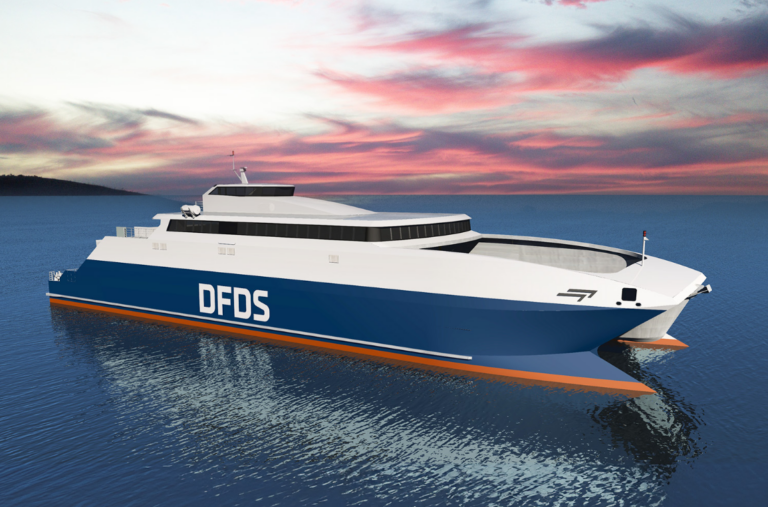Australian manufacturer of high-speed catamaran ferries Incat Tasmania has partnered with Danish ferry and logistics company DFDS to complete a design study for the construction of a new electric-hybrid ferry.

As disclosed, the 72-meter ferry, which will have the option to convert to fully electric, is suited to a number of ferry routes across Europe.
“Since launching the design of our series produced electric ships last November there has been significant interest from many ferry operators, and we’re excited to work with DFDS on their projects,” Incat CEO Stephen Casey said.
The manufacturer added that the battery electric or electric-hybrid propulsion coupled with lightweight aluminium on shorter sea routes could support the emission reduction.
Incat pioneered the development of large vehicle-carrying catamarans in 1990. The company has specialized in lightweight aluminum vessel design and construction. According to the firm, aluminum ferries, being approximately half the weight of their steel counterparts, require less power when operated at similar speeds and deadweights. This results in significant energy savings and emissions reductions, Incat stated.
In November last year, the Australian ferry manufacturer signed a Memorandum of Understanding (MoU) with Finnish technology company Wärtsilä to work on the design of a next-generation lightweight aluminium catamaran. The partners pledged to work on the design and development of integrated e-packages for electrical vessels, including battery electric, power distribution and management systems.
Meanwhile, DFDS unveiled its plans to deploy a fleet of battery-powered vessels in the Eastern Channel by 2030. The decision was revealed on the heels of a meeting between the French Minister for Foreign Trade, Attractiveness and French Nationals Abroad, Olivier Becht and CEO of DFDS, Torben Carlsen.
Short distances and the urgency of reducing carbon emissions have led DFDS and the French Government to collaborate in an effort to accelerate the transition towards a more sustainable future for the shipping industry.


